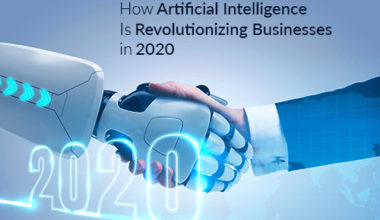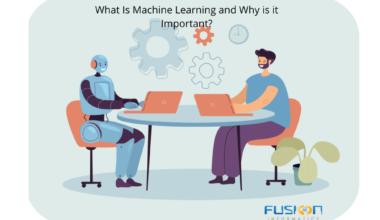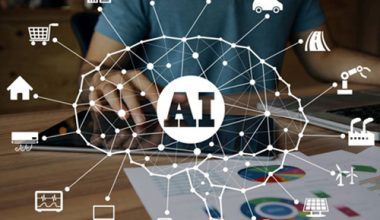The rise of Artificial Intelligence (AI) is unquestionably one of the most disruptive discoveries in an era marked by fast technical progress. AI has invaded several industries, including marketing, ranging from healthcare to engineering. The use of artificial intelligence (AI) in marketing tactics has offered new dimensions and opportunities, but it has also raised significant issues regarding its benefits and difficulties.

As artificial intelligence (AI) grows increasingly pervasive in our lives, it is critical to comprehend its complexities and possible influence on marketing. This blog article will look into the benefits and drawbacks of adopting AI into marketing operations, offering insight into the phenomenon’s multidimensional character.
Pros of Artificial Intelligence (AI) in Marketing
Diminished Human Error: One of the primary benefits of AI from AI Services Company is its potential to reduce human error. Unlike humans, AI systems make decisions based on compiled data and algorithms, resulting in enhanced accuracy and precision. By minimizing errors, AI-driven marketing strategies can yield more reliable results and insights.
Enhanced Decision-Making Speed: AI’s ability to process vast amounts of data within seconds accelerates decision-making. Marketing professionals can access real-time insights, enabling them to respond swiftly to dynamic market trends and consumer behaviors.
Uninterrupted Availability: Unlike human professionals who require rest, AI operates 24/7, contributing to consistent productivity. With regular maintenance, AI tools can ensure continuous support for marketing endeavors, leading to improved efficiency.
Mitigated Risk in Hazardous Tasks: AI’s applications extend to tasks that may pose risks to human safety, such as bomb defusing or deep-sea exploration. By delegating these tasks to AI, businesses can minimize potential dangers to human lives.
Automation of Repetitive Tasks: Marketing often involves repetitive tasks that consume valuable time. AI can automate these tasks, allowing human marketers to focus on creativity, innovation, and strategic planning, which are inherently human capabilities.
Effective Customer Interaction: The integration of AI-powered chatbots and digital assistants from AI Services Company facilitates seamless customer interactions. These tools can handle customer queries, streamline support services, and provide personalized experiences, enhancing customer satisfaction.
Pattern Recognition: AI excels at detecting patterns within vast datasets, enabling marketers to identify correlations and trends that may not be apparent through manual analysis. This capability enhances marketing analytics and aids in more informed decision-making.
Optimized Workflows: AI systems can analyze human workflows and offer suggestions for optimization. By identifying inefficiencies and streamlining processes, AI contributes to enhanced teamwork and overall productivity.
Efficient Handling of Large Data Sets: In the age of big data, AI’s capacity to manage and analyze massive datasets is invaluable. Marketers can extract actionable insights from extensive information, aiding in campaign planning and targeting.
Cons of Artificial Intelligence (AI) in Marketing
Impact on Employment: One of the significant concerns surrounding AI’s integration is its potential impact on employment. As AI from AI Services Company automates certain tasks, traditional job roles may be displaced, leading to job loss and an uneven distribution of opportunities.
Creativity Limitations: While AI excels at pattern recognition, it lacks true creativity and innovative thinking. The ability to think outside the box and generate novel ideas remains a distinct human trait that AI cannot replicate.
Emotional Absence: AI operates devoid of emotional intelligence. It cannot establish emotional connections or understand human emotions, limiting its effectiveness in emotionally-driven marketing contexts.
Ethical Complexities: The reliance on data and algorithms can inadvertently introduce biases and ethical challenges. AI’s decision-making lacks the moral considerations inherent to human judgments, potentially leading to unintended consequences.
Human Laziness and Dependency: The convenience of AI can lead to increased dependency, potentially resulting in reduced cognitive engagement and problem-solving skills among humans. Overreliance on AI may foster a sense of complacency and diminished human agency.
Data Privacy and Security Concerns: AI’s reliance on data raises significant concerns about data privacy and security. Large datasets carry inherent risks of unauthorized access, data breaches, and misuse of personal information.
Transparency and Accountability Issues: Complex AI algorithms can be difficult to interpret, leading to a lack of transparency in decision-making processes. This opacity raises questions about accountability and fairness, especially when AI-driven decisions impact individuals.
Dependency and Reliability: As organizations increasingly integrate AI into critical processes, there is a growing dependency on its capabilities. This reliance can pose risks in the event of AI system failures or malfunctions, affecting business operations.
Addressing the Ethical Dimensions of AI in Marketing
As we traverse the realm of AI in marketing from AI Services Company, it’s essential to dedicate a section to its ethical implications. The integration of AI introduces ethical complexities that demand careful attention. AI algorithms operate based on data, and if this data harbor biases or reflects societal inequalities, the AI systems can inadvertently perpetuate these biases. This is particularly concerning when AI is used for decision-making processes, such as candidate selection or credit scoring.
Furthermore, the lack of emotional intelligence in AI raises questions about its role in emotionally charged marketing campaigns. Crafting messages that resonate with human emotions requires a level of understanding that AI, as of now, cannot provide. Additionally, the increasing dependency on AI can potentially hinder human cognitive engagement and problem-solving skills, leading to a decline in certain aspects of human ingenuity.
Data privacy and security concerns loom large in the AI landscape. With AI relying on massive datasets, safeguarding personal and sensitive information becomes paramount. Data breaches and unauthorized access pose significant risks that must be addressed through stringent security measures and regulatory compliance.
Transparency and accountability are key ethical challenges associated with AI. The opacity of complex AI algorithms can create a “black box” scenario, where the decision-making process remains inscrutable. This opacity not only hampers the understanding of how decisions are reached but also raises questions of accountability when AI-driven decisions have tangible impacts.
As businesses delve deeper into AI integration, ethical considerations must be at the forefront. Striking a balance between harnessing AI’s potential and upholding ethical standards is a complex yet vital task. Organizations need to adopt responsible AI practices, continuously assess the fairness and implications of AI-driven decisions, and ensure transparency in their processes.
Conclusion
In the dynamic landscape of AI-driven marketing, a balanced approach is key. The benefits of AI in marketing are evident, from enhancing efficiency to providing data-driven insights that inform decision-making. However, the potential drawbacks, such as job displacement and ethical considerations, cannot be ignored.















